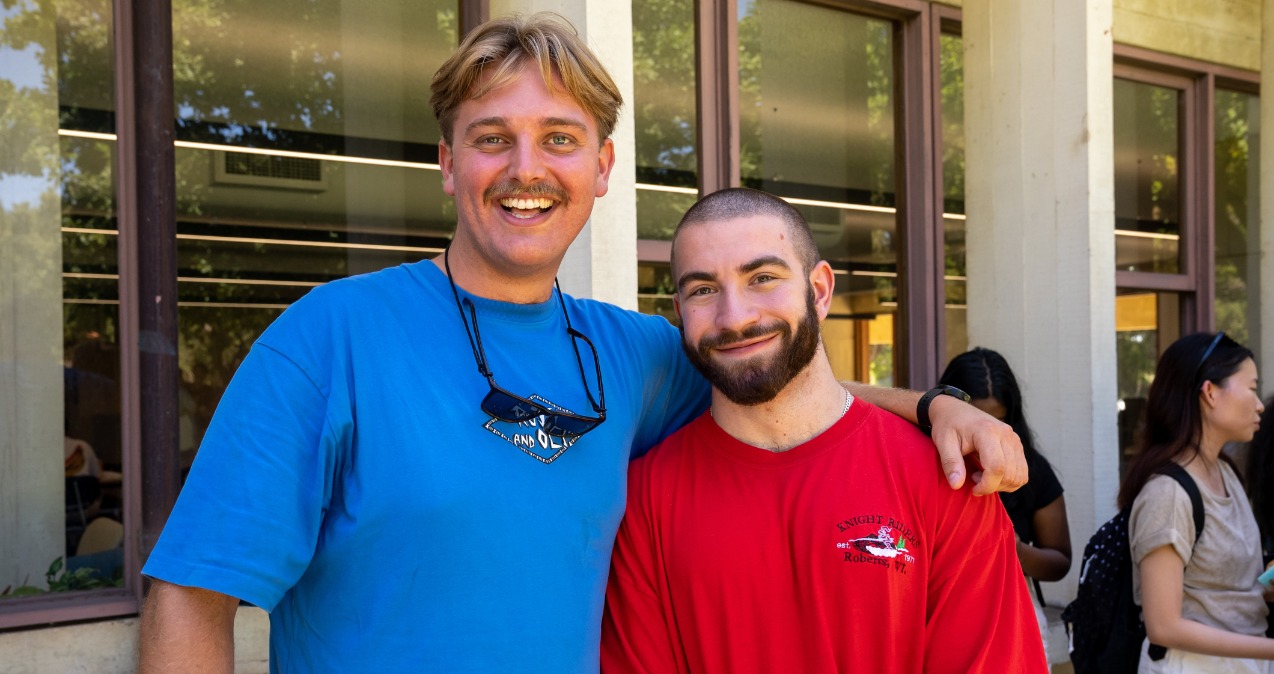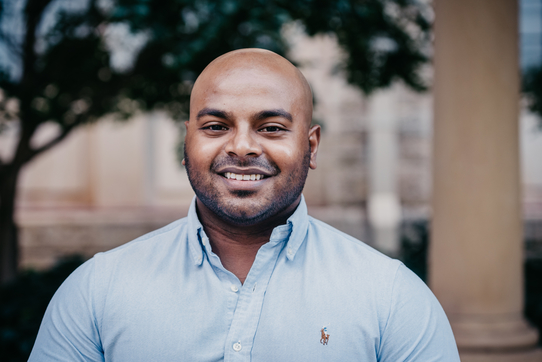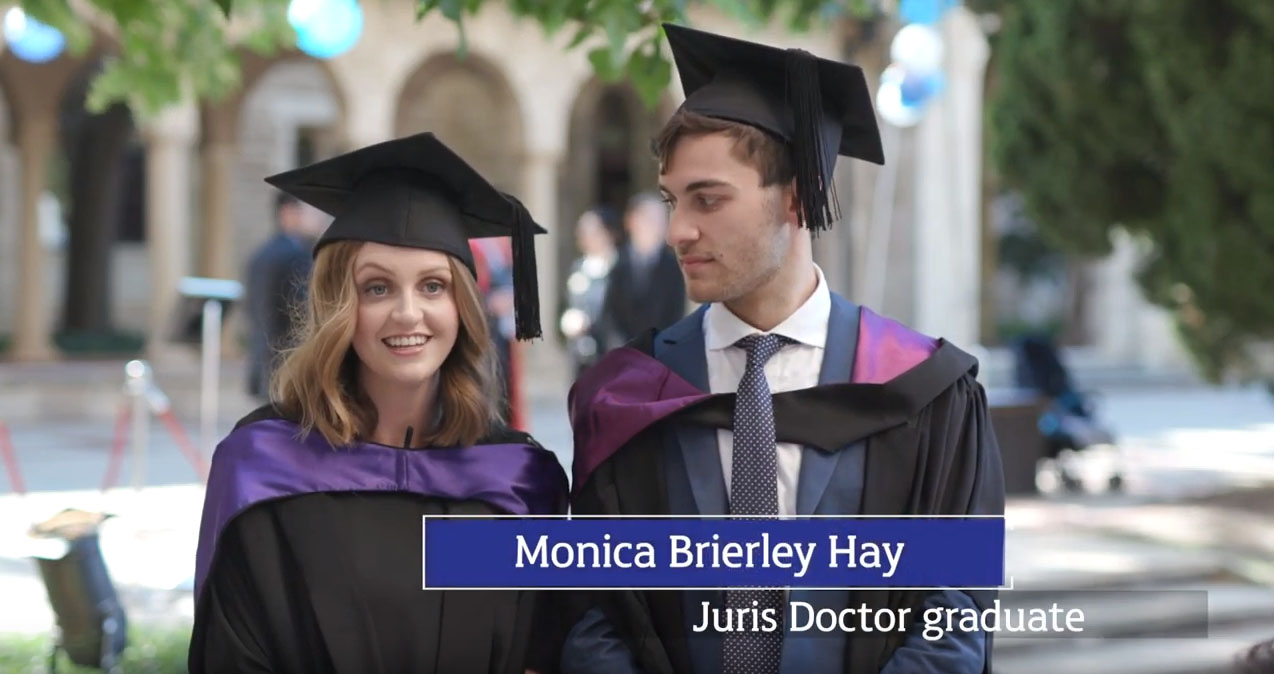Postgraduate
Juris Doctor (JD)
Contact us
Address
Student Central
The University of Western Australia (M355), 35 Stirling Highway, Perth, Western Australia 6009
Telephone
131 UWA (131 892)
International
(+61 8) 6488 1000
Hours
Frequently asked questions
Events you may be interested in
Show more eventsCareers and further study
Explore the career opportunities available to you.
Career Pathways
Further Study
Fees and scholarships
Learn more about the fees that apply to you for this course.
Domestic Student Fees
For Commonwealth-supported places, student contribution amounts are charged by unit, based on area of study. For a fee estimate, go to the Fee Calculator and select “I want to price my units”. Fees are subject to annual indexation. Refer to the Handbook to identify the units required. More information on how fees are calculated.
Domestic Student Fees for Full-Fee Paying Places
If you're not eligible for a Commonwealth-supported places, you will be charged a for Full-Fee Paying place. For Full-Fee Paying places, students are charged an annual course fee, charged per credit point at a rate dependent on the course in which the student is enrolled. Annual course fees are calculated based on an annual study load.
Check the handbook to confirm the annual study load for your course. Visit the Fee Calculator and select your course type to find out more. Fees are subject to annual indexation. More information on how fees are calculated.
Juris Doctor fee categories explained
Scholarships
Scholarships are available to students from a diverse range of backgrounds, including academic achievement, financial need, educational disadvantage, leadership and community service, artistic or sporting achievements, and being from a rural or remote area.
Cost of living
International Student Fees
Onshore international students are charged an annual course fee, charged per credit point at a rate dependent on the course in which the student is enrolled. Annual course fees are calculated based on an annual study load. Check the handbook to confirm the annual study load for your course.
Find out more about international student tuition fees and visit the fee calculator for the relevant course fees.
Fees are subject to annual indexation.
Scholarships
Scholarships are available to students from a diverse range of backgrounds, including academic achievement, financial need, educational disadvantage, leadership and community service, artistic or sporting achievements, and being from a rural or remote area.
Cost of living
Admission requirements
If you’re interested in furthering your career by studying this postgraduate course, find out the admission details below
Admission Requirements
(a) a bachelor's degree, or an equivalent qualification, as recognised by UWA;
and;
(b) the equivalent of a UWA grade point average (GPA) of at least 5.5*.
(2) To be considered for admission to this course an Indigenous applicant must have—
(a) met the general admission requirements under 4.(1);
or
(b)
(i) a bachelor's degree via the UWA Indigenous Direct Pathway; and
(ii) the equivalent of a UWA grade point average (GPA) of at least 5.0*;
or
(c)
(i) a bachelor's degree, or an equivalent qualification, as recognised by UWA; and
(ii) a School of Indigenous Studies' Law Admission Test and interview
(3) To be considered for admission to this course via the Equity and Diversity Pathway an applicant must have—
(a)
(i) held a protection, refugee or humanitarian visa within seven years prior to applying for admission to this course; or
(ii) experienced significant personal, medical, social, educational, cultural or financial disadvantage or hardship, including any disadvantage or hardship resulting from an applicant's sexual orientation or gender identity that has had an effect on their prior academic studies;
and
(b) a bachelor's degree, or an equivalent qualification, as recognised by UWA;
and
(c) the equivalent of a UWA grade point average (GPA) of at least 5.0.
(4) To be considered for admission to this course via the alternative experience pathway an applicant must have—
(a)
(i) a bachelor's degree, or an equivalent qualification, as recognised by UWA; and
(ii) demonstrate competency for legal studies derived from a minimum of five years' unpaid or paid work, study or other experience, since completion of the undergraduate degree in (i); and
(iii) completed the equivalent of one year full time in a UWA undergraduate course with a minimum GPA of 5.5 undertaken within the past two years;
or
(b)
(i) a bachelor's degree, or an equivalent qualification, as recognised by UWA; and
(ii) the equivalent of a UWA grade point average (GPA) of at least 5.0; and
(iii) demonstrate competency for legal studies derived from a minimum of five years' unpaid or paid work, study or other experience since completion of the undergraduate degree in (i); and
(iv) personal statement; and
(v) interview.
To be considered for transfer to this course an applicant must—
(a) have been enrolled in a recognised Juris Doctor course at another Australian University; and
(b) have successfully completed at least one full semester (or equivalent part time study) in that Juris Doctor;
and
(c) have achieved the equivalent of a UWA weighted average mark (WAM) of at least 60 per cent in that Juris Doctor course.
*All completed tertiary studies will be used when calculating the WAM and GPA.
2026 Selection GPA Calculation
Your selection GPA for JD admission will be calculated on a maximum 7-point scale and is rounded to two decimal places. Where appropriate, your grades will be converted to this scale using approved guidelines.
If you have completed more than one degree qualification, your selection GPA will include all completed qualifications. Each qualification is weighted by standard full-time degree duration, as part of a combined selection GPA.
Ranking and Selection Process
(a) for indigenous applicants under Rule 4(2) (b), or (c):
(i) the admission requirements under Rule 4(2) (b), or (c);
and
(ii) the indigenous student quota of up to 20 per year;
(b) for applicants in the Equity and Diversity Pathway:
(i) the admission requirements under 4.(3) (a), (b) and (c); and
(ii) the Equity and Diversity Pathway quota of 20 per year;
or
(c) for applicants who do not have a place in a Direct Pathway into this course and are not transferring from another Juris Doctor course:
(i) the admission requirements under Rule 4(1); and
(ii) the intake quota for that year.
Alternative Experience pathway
Entry for 2026
If you would like to start the JD in Semester 1, 2026 and would like to apply for our Alternative Experience pathway, please apply to Admissions with your personal statement outlining which pathway you are applying for, your résumé and any other supporting documents as outlined in the admission requirements.
Applications for the Alternative Experience pathway close on 15 November 2025.
English competency
English is the language of instruction and assessment at UWA and you will need to meet the English language requirements of the University to be eligible for a place.
This course has higher ELC requirements. Applicants presenting with the IELTS Academic require an overall score of at least 7.5 and no band less than 7.0. For more information visit ELC requirements.
Equity and Diversity pathway
Entry for 2026
If you would like to start the JD in Semester 1, 2026 and would like to apply for our Equity and Diversity pathway, please apply to Admissions with your personal statement outlining which pathway you are applying for and any other supporting documents as outlined in the admission requirements.
Applications for the Equity and Diversity pathway close on 15 November 2025.
JD Transfer pathway
Entry for 2026
If you have studied in an Australian Juris Doctor for a minimum of one semester (full-time), you may be eligible for admission under the JD Transfer pathway.
How to apply
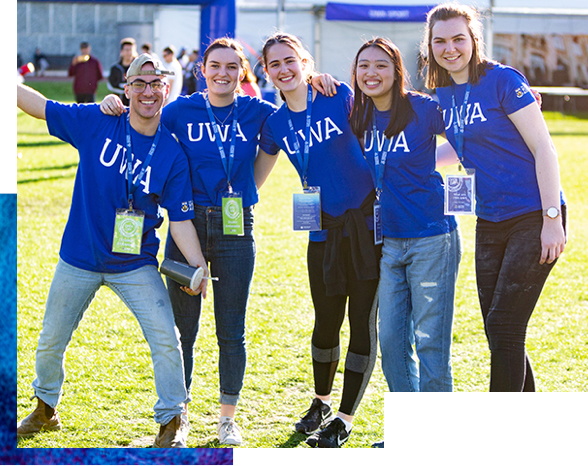
Ready for the next step?
Find out how to apply through our simple online application process.
We'll guide you through our entry requirements, admission pathways available to you and application deadlines for your chosen course.
We can’t wait for you to join us!
Course details
Problem solvers who have a deep practical and theoretical mastery of subject matter; are critical and creative thinkers; and understand the ways in which local, national and global contexts influence and shape the law.
Culturally competent legal professionals who have engaged throughout their degree with Indigenous knowledges, cultures and perspectives and are well equipped to work respectfully across cultural contexts.
Relationship builders who listen with empathy; communicate effectively; and create constructive and collaborative connections with colleagues, clients and communities.
Resilient and reflective learners who are adaptable thinkers; have developed skills for critical self-reflection and lifelong learning; and understand the importance of, and have developed practical tools for, managing their well-being and supporting the well-being of others.
Global citizens who understand the importance of the ethical and professional practice of law; are outward-looking in the search for solutions; and able to engage on national, transnational and international levels.
About the course
Quick details
- Available
- Perth (Crawley campus)
- Full-time
- Part-time
- On-campus
- Semester 1
- The estimated time commitment for a standard full-time enrolment is approximately 46 hours per week which includes contact hours, personal study and examinations.
- Postgraduate
- 20820
- 089786C
Course structure
Postgraduate coursework degrees and combined (coursework and research) degrees comprise a number of units. Refer to the course structure for more information.
Important dates
- Feburary 2026
- Thursday 1 May 2025
- Visit the Juris Doctor admission requirements page for information on Alternative Experience and Equity and Diversity Pathways.
- Monday 12 January 2026
- Equity and Diversity Pathways close - 15 November 2025
- Alternative Experience Pathways close - 15 November 2025
Refer to Admissions Requirements for information on eligibility criteria and how to apply.
Why study this course?
- Learn from the very best of the legal profession and award-winning academics recognised nationally for excellence in teaching and research.
- Emphasis on practical and professional skill building and an inquiry approach to learning.
- Study with high-achieving students in an inclusive environment and build lifelong friendships with a diverse and vibrant cohort of future leaders.
- Very high graduate employment rates.
- Comprehensive and integrated wellbeing and professionalism programs.
- You'll be introduced to cutting-edge technological developments in the law and in the provision of legal services.
- Progressive and interesting elective offerings.
Assured Pathways
JD Assured Pathway
Bridging the gap between social justice advocacy and law reform
JD study plan
The JD curriculum has been purposefully designed to scaffold sequential knowledge and skills progression, and may be completed in three years full-time or on a part-time basis (up to nine years). Students with external commitments (including but not limited to work, travel, clerkships and sporting commitments) are expected to plan these commitments around their studies. External commitments are not regarded as valid reasons for timetable changes, swapping tutorials, the waiving of pre-requisites or variation from the prescribed course structure*.
In making a decision as to whether to complete the JD on a full or part-time basis, students should be aware that the estimated time commitment for a full-time (4 units) enrolment is approximately 46 hours per week excluding examinations. Some units are also offered as intensives, either in semester breaks or between semesters. Although the contact hours for these units are compressed into a shorter period of time, the time commitment of the unit remains the same.
* Students who undertake exchange, or other commitments which involve official representation of the Law School or the University, or which are recognised under University Policy, may seek approval from the Deputy Head of School (Students) for a variation in the prescribed course structure.
Full time course structure
Year 1- Foundations of Law and Lawyering# (Sem 1)
- Criminal Law (Sem 1)
- Contract (Sem 1)
- Property (Sem 1)
- Foundations of Public Law (Sem 2)
- Torts (Sem 2)
- Interpretation (Sem 2)
- Land Law (Sem 2)
- Dispute Resolution# (Sem 1)
- Constitutional Law (Sem 1)
- Equity and Trusts (Sem 1)
- Option 1 (Sem 1)
- Corporations Law (Sem 2)
- Remedies (Sem 2)
- Administrative Law (Sem 2)
- Option 2 (Sem 2)
- Professional and Ethical Practice# (Sem 1)
- Evidence (Sem 1)
- Option 3 (Sem 1)
- Option 4 (Sem 1)
- Procedure (Sem 2)
- Option 5 (Sem 2)
- Option 6 (Sem 2)
- Option 7 (Sem 2)
# These units are taught intensively over a two-week period immediately preceding the start of Semester 1.
Course Co-Director, Murray Wesson

Murray Wesson is Co-Director of the Juris Doctor and teaches Human Rights: Law and Context (LAWS2224), Constitutional Law (LAWS5101) and Advanced Public Law (LAWS5209).
His research explores topics such as free speech, the rule of law, and proportionality, from an Australian and comparative constitutional law perspective.
Take a master's unit
Course Accreditation
International recognition
Western Australia's premier Law School
The UWA Law School is ranked in the top 150 law schools in the world for Law and Legal Studies (QS 2025). You will join and contribute to 90 years of excellence: we are the first law school established in WA and the fifth oldest in Australia.
Our graduates include a Prime Minister, a Governor of Western Australia, State Ministers, Justices of the Supreme Court of WA, a Young Australian of the Year, Rhodes Scholars, and more.
While we have a long and proud history, we're also a closely-knit, creative and progressive Law School, fostering critical thought, ethical scholarship and practice, a deep connection to our Indigenous past and present, and supportive student culture based upon wellbeing and inclusion.
Arianna's internship at Legal Aid
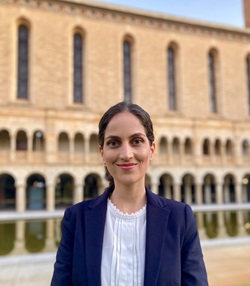
"My internship at Legal Aid was an invaluable opportunity to experience how working in a legal environment, particularly in Criminal Law, would be. Undertaking the internship gave me an insight into advocacy and the court system, something I have a keen interest in. As part of my internship, I rotated with lawyers at the Children’s Court, Magistrates Court and District Court and I was also involved with various research projects within the organisation. It was a really rewarding experience as it allowed me to apply and observe some of the legal concepts learnt at university and confirmed my intention to pursue a career in this area of law"
- Arianna Aragona
Meet our alumni
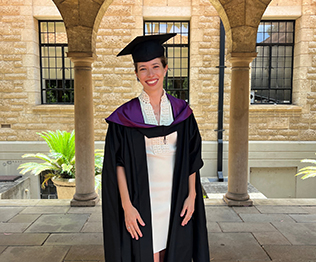
When I left high school, I wasn't sure what career I wanted to pursue. UWA's flexible course structure gave me the freedom to try an undergraduate law degree, where I was drawn to the strategic nature of legal reasoning and critical thinking. Pursuing the postgraduate Juris Doctor felt like a natural next step.
Throughout the Juris Doctor, I gained far more than just an understanding of black-letter law. What truly defined my time at law school was the community. The academic staff are not only experts in their field, but also approachable mentors who are genuinely invested in their students' success and open to thoughtful, engaging discussion beyond the classroom. I was also fortunate to be surrounded by peers who have become friends for life.
For anyone considering studying law: it’s challenging, but incredibly fulfilling. There’s nothing quite like the moment when a complex concept suddenly clicks. Make the most of every opportunity—get involved, back yourself, and trust that the effort you put in pays off in ways you can't imagine.
Mariella Panegyres, Bachelor of Science (2020), Juris Doctor (2023)
Work integrated learning
- Legal Internship unit – 12 week legal work placement
- Clinical Legal Education unit, situated in the UWA Mediation Clinic and Minderoo Tech & Policy Lab
- Legal APPtitude elective
- Mooting competitions, client interview competitions, and Australia’s first university law journal


